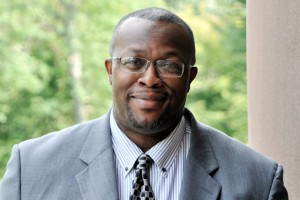American Council on Education Sponsors Close’s Fellowship at Wesleyan

Stacey Close, a professor of history, philosophy and political science at Eastern Connecticut State University, will spend the current academic year at Wesleyan as an ACE Fellow. Sponsored by the American Council on Education, the program prepares fellows to serve American colleges and universities in leadership positions.
“It’s a pleasure to welcome Stacey Close to campus,” says President Michael S. Roth. “Wesleyan will surely benefit from the expertise he brings, and I hope he will fulfill his professional goals through his association with us.”
Close has served as director of faculty development at Eastern’s Center for Educational Excellence and as chair of the department of history, philosophy, political science and geography.
He has taught at Eastern since 1993 and was a recipient of Eastern’s Teaching Excellence Award in 2004. He is an authority on the history of African Americans in the Hartford area, with published papers on topics such as “Black Migration, Immigration, Garveyism and the Transformation of Black Hartford, 1917-28,” (The Griot, spring 2003) and “Fire in the Bones: The NAACP, Civil Rights, and Militancy in Hartford, 1943-67,” (Journal of Negro History, summer 2001). He also co-authored a chapter titled “Beyond Tuskegee: Why African-Americans Don’t Participate in Research,” in Handbook of African-American Health (Guilford Press, 2010).
Through the ACE program, Close plans to develop a base of knowledge that will contribute to the growth of his home institution. “While I want to work to increase my knowledge in strategic planning, resource allocation, budgeting, and management at the senior level, I would also like to learn more about equity, diversity, retention and community engagement,” he says.
He has a particular interest in issues such as prioritizing equity and diversity in strategic planning, as well as recruitment and retention practices for minority students interested in science and technology.

